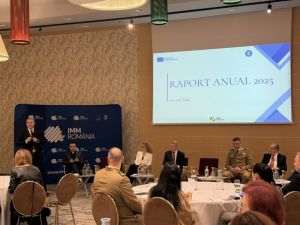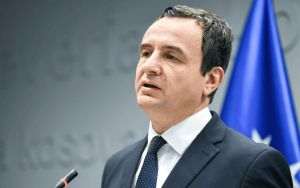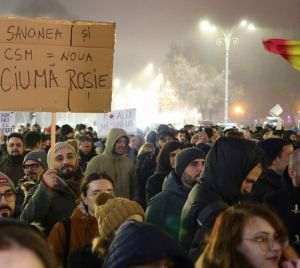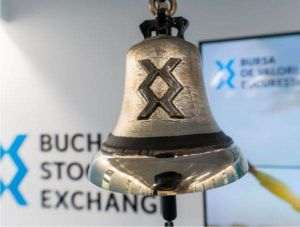• The public debate on the Rasdaq has to take place in the General Shareholder Meetings of the listed issuers
Blinded by the way the Rasdaq market was created - on command - the CNVM of today can't even fathom that the fate of issuers after the disbandment of the market is regulated by the laws of the country, and is therefore reinventing the wheel, perpetuating the abuse, in the Draft "Instruction concerning the companies whose shares are traded on the RASDAQ market or on the market for unlisted securities".
A project which it has subjected to a so-called "public debate".
The Law 31/1990 of companies grants all the rights - ownership, disposition and decision - to the shareholders of the company.
Using the rights granted to them by the law, the shareholders decide on the nature of the shares (registered or bearer), on their number, on the categories and the rights derived from the shares in question, on their listing on a stock market and have the right to choose the market in question.
The CNVM does not have any right to substitute itself to the shareholders, like it seems it would like to do, through the Draft Instruction.
If it intends to disband the Rasdaq market, then what the CNVM can and has the right to do, is to notify the issuers about that.
The CNVM can not force a deadline by which the shareholders should hold the General Meetings, because it isn't some economic planning ministry from under Ceauşescu.
The shareholders meet as legally provided and when they want to.
Issuers can't just be moved from one market to another, on a whim of the CNVM.
The issuers decide by themselves whether they like the new market which they are being proposed.
The aberration becomes purely grotesque, on the matter of the withdrawal from the market, in which case the CNVM has the audacity to demand a buyout of all the outstanding shares. What?!, after having lied to the shareholders for years that the Rasdaq was a regulated market and even published official activity reports for it in 2011, signed, sealed which plainly stated that "the regulated market which the shares were listed on was the Rasdaq market" - and it never contradicted those statements - it now tells them that they need to bring money from home to, if they don't agree to being moved to the new stock market possibly against their will?!
You mean to tell me that the CNVM, the BSE, Duţescu and the AIPC decide on my stocks in my stead?!
Why shouldn't they be allowed decide on my home, my children and my thoughts, then?!
The Draft Instruction of the CNVM is promoting so many illegalities, that it is exhausting.
............................................................
A former journalist at "BURSA" between 1994-96, who became the head of a powerful brokerage firm, called me on the phone in the autumn of 1997, to warn me:
"You chose the wrong side in going against the Rasdaq market. Don't you see that the Rasdaq is the future?! The Bucharest Stock Exchange is the past, get with the times!"
I am convinced he meant well.
At the same time, he once again proved that he wasn't cut out to be a journalist.
Because a journalist writes articles out of conviction, not to bet on the right horse.
The fact that apparently, life validated my conviction, is just a coincidence.
The Rasdaq market turned to dust.
Something which could have been avoided.
Because, even though it didn't help the national economy in any way, it just helped takeovers (more or less ethical or legal), speculations and theft, the Rasdaq market could have remained alive a lot longer, and could have kept on serving no purpose.
Anyway, the story of the Rasdaq - a horror flick of the Romanian stock market, will not die with it; the story of the Rasdaq is changing ...
• My part and that of the BURSA newspaper
I will reveal a few details about my personal involvement and the part of the BURSA newspaper, during the period when the American consultants were designing the Rasdaq market (from the autumn of 1995 and the spring of 1996), details which have never been made public before, which could clarify some older events (which generate false rumors) and shed a light on everything that is happening now.
I was happy when, in the autumn of 1995, the Americans of the USAID came to Romania (behind prime minister Nicolae Văcăroiu) by Ştefan Boboc (the president of the CNVM at the time, the only one in the history of the planet, to hold such a position and end up in jail) to help him develop the Romanian stock market.
At the time, the BURSA newspaper was encouraging the creation of the Romanian stock market, through its activity - aside from the articles published in support, we had set up classifieds for the sale and buying of securities (initially, Ownership Certificates, and later, shares from the pilot privatization programs, from 1993 and the beginning of 1995).
We had listed the for sale, by their price, starting with the lowest price, matched with the buy orders, which started with the highest price, which means we were displaying potential transactions.
The ads were free of charge.
The pages of our paper were flooded with that kind of ads, thus encouraging the creation of a natural market, which, I offered to the USAID upon their arrival, without requesting any compensation, to take over and grow.
I had a few meetings with the USAID, of which three consisted of lengthy debates, for hours on end, with 8 to 10 and sometimes even more of their specialists (who were taking notes - a detail which did not arouse my suspicion at the time, but I only later understood what they were doing), debates concerning the provisions of the Law no. 52/1994 (the initial founding law of the market, the principles and details of which I had learned about directly from its author, the very kind professor Nicolae Turcu, of the Legislative Council, whom I continuously thank for guiding my first steps towards understanding the unity between the law, the functionality of the market and its economic and social usefulness).
• The hostility of the USAID came as a result of its own need to survive
I was shocked to later see the hostility of the USAID consultants towards the BURSA newspaper and towards me personally (one of their bosses, whose name I can still remember - Jeffrey Brown - explicitly threatened me, to my face, that they would put me in jail, if I didn't eliminate the classifieds for the sale buying of stocks), telling me (without any justification) that the natural market which was just taking root, needed to be cut down.
It was a lot later, that I realized that the USAID was seeing the BURSA newspaper as a rival of its own project (my modesty prevented me from even thinking of something like that at the time), because, that market being natural, it was obvious that the informal market which the newspaper reflected and encouraged, was functional.
As an organization in itself, the USAID was faced with the lack of confidence from the American Congress, which had proposed to disband it, and the project for the assistance of the Romanian stock market (which was supposed to become the most important in the Balkans, according to their publicly stated goal), had a huge importance for the survival of the agency, because that project was supposed to prove the usefulness of the USAID to their own Congress.
So that my reasonable proposal, for them to take the natural market and to develop it gradually, to oversee and it to regulate it as it grew, since it was a process with an unknown duration, which required care, attention, moderation, did not fit with the goals of the USAID, who needed to report to Congress its success in Romania, at a predetermined date.
• The harassment
I had repeatedly refused the requests of the USAID, as well as those of the CNVM and of the president of the Stock Exchange at the time (Ion Mihăilă) to eliminate the category of classifieds for the sale/buying of shares, so, in 1996, an entire machination was put in motion against the BURSA newspaper, with Ştefan Boboc stating on PRO TV during the news, that the editorial of office of BURSA was "a nest of criminals", against which a criminal case had been opened, with the police asking me to "come make a statement", before being indicted - a persecution which was reported in the foreign media and which was ended through a letter addressed to Romania's president at the time, Ion Iliescu, signed by forty international organizations for the freedom of the press (I want to thank Iolanda Stăniloiu, who, as the head of the Center for Independent Journalism, who facilitated my communication with the foreign organizations and I also want to thank the members of these organizations whom I have never met).
Even though I weathered the pressure, I must confess that I have never been more afraid than I was then.
• Abuse and deliberate violation of the law
Sometime in 1997, the USAID and the CNVM published a book together, containing the so-called rules of the equity market, the so-called "Yellow book", which was used until 2002 by all the players of the stock market.
The "Yellow Book" included amendments to the Law no. 52/1994, precisely the ones which had been the object of contradiction between me and the USAID consultants, during the three meetings, when they had taken notes.
After that, it didn't matter that I wrote any further articles about the violations of the law by the CNVM, the distortions which the CNVM brought to the "Yellow Book", in relation to the Law of the Official Gazette; no one believed me, people read "BURSA" paper and just shrugged their shoulders.
It was like shouting in the desert.
• The Rasdaq market was created by the typists of the RRA
After the logistic system of Rasdaq S.R.L. was finished, the specialists of the USAID were faced with the problem that the issuers - the plants and various manufacturers - had no idea about the boiler room operation of the USAID, so one of their experts (an expert in what?, abuse perhaps), named Sarah Ackerman, issued the order of getting all of the 5000 companies which had just been privatized through the Mass Privatization program, listed on the Rasdaq.
Starting with October 26th, 1996, when the first trades with the shares of the four issuers listed on the Rasdaq took place, the typists of the Romanian Shareholder Registry (the only registrar of the Rasdaq, until 1999) entered the data of the privatized companies into the computer, without asking any of them whether they wanted to be listed or not.
The data had come directly from the Management and Computer Science Institute (IMI - the one which centralized the information about the subscriptions of the Mass Privatization Program), without even one copy of it being sent to the issuers themselves.
Of course, the law required the procedure to go precisely the other way around: the subscription data was supposed to be sent to the companies, which would then hold General Shareholder Meetings, so they could be consolidated in the Registry of the shareholders and in the Stock Certificate Registry, followed by another General Shareholder Meeting, which would decide on the nature of the shares and whether they would be listed or not, and if the answer was yes, which would be their market of choice - the BSE or the Rasdaq.
Since these steps weren't followed, the subscribers were not granted the legal status of "shareholders", and the subscriptions did not receive the legal status of "shares".
The legal consequence is the fact that the Rasdaq market became a place on which it wasn't stocks that were traded, but subscriptions (a fact which I repeatedly argued in BURSA, warning that the market was illegal).
The practical result was that in March 1997, the government and the USAID celebrated "the success" of the listing of 1,300 companies which were mass privatized (of which just 60 had concluded contracts with the market, through the Romanian Registry of Shareholders); quite an "achievement" for the typists, which was reported to the US Congress, saving the USAID from being disbanded.
Another practical consequence was that the Rasdaq saw trading of shares of "Petrotrans", a company which had been disbanded six months before the inauguration of the Rasdaq.
• The RASDAQ "Success Story"
The subsequent developments of the Rasdaq market are a bit better known, so I will only write about the fall of the market, in the beginning of 1998, after the explosive boom it had seen in the summer of 1997, when the market had attracted foreign investment funds, including Broadhurst (a fund guaranteed by the OPIC - in other words by the American taxpayers' money - to the tune of 75%), the one which had the largest contribution to supporting the market.
In 2004, the doors of the Rasdaq were sealed, through a court order (stemming from the Rasdaq's failure to pay about 300,000 dollars to the IT company which had delivered services to it), In December 2005 it merged with the BSE and it then became a Cinderella of our stock market, which the Bucharest Stock Exchange is ashamed to even mention.
The CNVM wants to disband the Rasdaq.
It was active for about 17 years.
I lived enough to see it be born and to see it die.
I can now say: "May it rest in peace!"
What can the USAID say?
It's just 30 millions of dollars wasted, out of the pocket of American taxpayers.
There's plenty more where that came from!...
By the way - who owns the computers of the Rasdaq?
• The alternative doctrine: bearer stocks
Forced by the circumstances, I devised a theory on the process for the implementation of the stock market, on "virgin land", so to speak, in countries which had no history in that area, a theory which even the international financial institutions were missing in the 90s.
I came to the conclusion that the historical stages for the creation of the stock market can be hastened, but not eliminated, and that the step of bearer stock certificates was mandatory for a healthy, viable market, which would play its beneficial part in the development of the economy.
Moreover, under our current circumstances, with a level of IT penetration which placed us next-to-last in Europe (only Albania was lower than us), with the kneecaps of mutual funds shattered by the spoliation of investors in March 1996 (meaning that there was no way to convert the savings into capital available for investments), the bearer stock certificates and the informal market were absolutely required.
I elaborated the details of the theory and drafted its practical applications.
In 1998, I pitted it against the opinions of a senior of the USAID, former expert of the World Bank, who had come to Romania sent "by HQ" to investigate the conflict between their experts and the "BURSA" newspaper, who, after two hours, in which he overwhelmed me with his expertise and his vast knowledge of the relations between the banking market and the equity market, interrupted my theoretical stubbornness, laughing:
"Stop!", he said, "I wanted to see what you could do, but in fact, you were right".
And he went on, leaving me dumbstruck:
"No one will ever listen to you. Do you have any idea why we're here? Because in 1990, you lost a war. And just like it's always done, the winner takes the war spoils and it gives me great pleasure to tell you this bluntly, because I am the winner, and you are the loser".
I want to thank him for his honesty and out of gratitude, I won't mention his name, even though he was most likely close to retirement even then.
Of course, the World Bank did not provide me with an answer to the text which I forwarded, through its representative here.
In another private meeting, which was also attended by Governor Mugur Isărescu, I had the privilege of submitting my theory for examination by Nobel prize winner Joseph Stiglitz, in a contention which lasted about forty minutes.
He ended the conversation with the words which to me were purely satisfactory:
"Yes the theory is valid, it is self-supporting and makes sense, but I will always be against something so barbarous".
I must also mention that over the same period, I proposed the board of the State Property Fund, led by Radu Sârbu, a privatization program based on bearer stocks, which he found interesting enough to send it to the Legal Department, where the project was buried after a few meetings, even though it had no legal glitches.
Nowadays, I am still thinking that, despite the conditions of the world financial crisis, when we are all looking for an innovative model, this theoretical ending could set up "the Romanian model".



























































